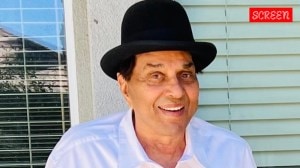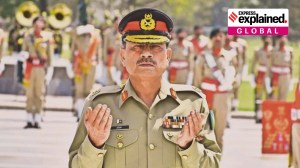Mishra transformed Indias foreign policy
Mishras moment came when he was appointed as the Principal Secretary to the Prime Minister Atal Bihari Vajpayee in March 1998.
Brajesh Chandra Mishra,who passed away late Friday evening in Delhi,will be long remembered for his extraordinary role in transforming Indias foreign policy,reshaping its nuclear orientation and modernising its national security system.
Few civil servants in modern Indias history have had as much influence in shaping Indias statecraft as Mishra,who joined the Indian Foreign Service in 1951.
Mishra,the son of well known Congressman and former Chief Minister of Madhya Pradesh Dwaraka Prasad Mishra,came into his own after retiring from the government and joining the BJP in the early 1990s.
Mishras moment came when he was appointed as the Principal Secretary to the Prime Minister Atal Bihari Vajpayee in March 1998. With Vajpayee giving him full support,Mishra had the intellectual conviction as well as bureaucratic skill to lay the foundations for reordering Indias engagement with the world.
Within a few weeks of taking charge as the Principal Secretary,Mishra was preparing the ground for the Shakti series of nuclear tests in May 1998.
If conducting nuclear tests and declaring India as a nuclear weapon state was easy,coping with its international consequences was very challenging. As the world powers joined to condemn Indias decision and imposed sanctions,Delhi needed political determination,bureaucratic purposefulness and diplomatic skill to break out of the international isolation.
Those were the precise qualities that Mishra brought to the Prime Ministers Office in steering Indias ship of state in those difficult moments and helping turn the critics of Delhis nuclear adventure into eventual partners.
Even as he coordinated Indias nuclear diplomacy,Mishra had the bigger task of making India a credible nuclear weapon power. This involved the development of an effective nuclear doctrine as well as the organisational structures to manage Indias fledgeling nuclear forces.
His concurrent appointment as Indias first national security adviser in November 1998,Mishra had the sweeping authority to recast the nations foreign and defence policies.
The surprise of the Kargil war in the summer of 1999 provided the occasion for Mishra to set in motion a comprehensive review and reform of Indias national security apparatus.
Mishras tenure as the first national security adviser saw a rare boldness in the conduct of Indias foreign policy and the readiness to discard many of the inherited political shibboleths.
Together with Jaswant Singh,who became Vajpayees external affairs minister at the end of 1998,Mishra set to out restructure Indias three most difficult relations with Pakistan,China and the United States.
While there were twists and turns in Indias ties with these three countries,Mishras initiatives helped define a new framework for dealing with each of these countries.
Every one of the moves by the BJP-led government towards Pakistan,China and the United States generated much political controversy. That the Manmohan Singh government persisted with these policies underlined Mishras contribution to the building of a new foreign policy consensus.
Mishras greatest contribution was in generating the confidence in Delhi to imagine India as a great power that is in harmony with its neighbours and is capable of playing a larger role in world affairs.
In the Delhi durbar,Mishra won fierce loyalty among the mandarins who worked with him and much respect from his many political adversaries,for no one doubted his commitment to make India a strong nation.
Even as he exuded great authority and did not suffer fools,Mishra was accessible to the media and the strategic community always eager to explain the national security transformation underway.
Behind the forbidding demeanour and towering presence,Mishra had a warm persona that endeared him to all those who got to know him a little bit.
The writer is a Distinguished Fellow at the Observer Research Foundation and a Contributing Editor for The Indian Express



- 01
- 02
- 03
- 04
- 05




























